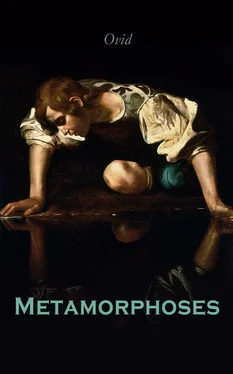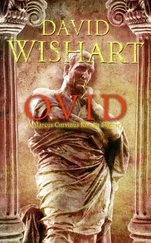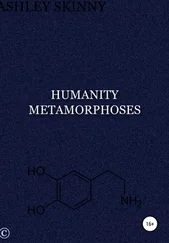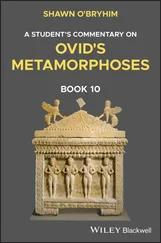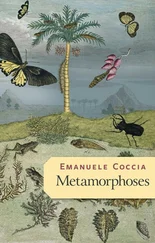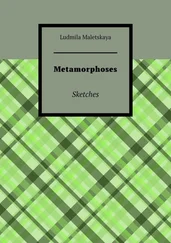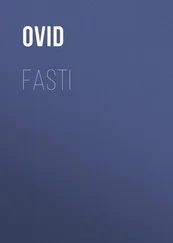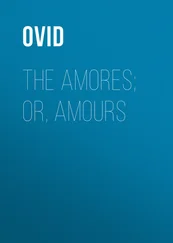Ovid - Metamorphoses
Здесь есть возможность читать онлайн «Ovid - Metamorphoses» — ознакомительный отрывок электронной книги совершенно бесплатно, а после прочтения отрывка купить полную версию. В некоторых случаях можно слушать аудио, скачать через торрент в формате fb2 и присутствует краткое содержание. Жанр: unrecognised, на английском языке. Описание произведения, (предисловие) а так же отзывы посетителей доступны на портале библиотеки ЛибКат.
- Название:Metamorphoses
- Автор:
- Жанр:
- Год:неизвестен
- ISBN:нет данных
- Рейтинг книги:3 / 5. Голосов: 1
-
Избранное:Добавить в избранное
- Отзывы:
-
Ваша оценка:
- 60
- 1
- 2
- 3
- 4
- 5
Metamorphoses: краткое содержание, описание и аннотация
Предлагаем к чтению аннотацию, описание, краткое содержание или предисловие (зависит от того, что написал сам автор книги «Metamorphoses»). Если вы не нашли необходимую информацию о книге — напишите в комментариях, мы постараемся отыскать её.
Metamorphoses — читать онлайн ознакомительный отрывок
Ниже представлен текст книги, разбитый по страницам. Система сохранения места последней прочитанной страницы, позволяет с удобством читать онлайн бесплатно книгу «Metamorphoses», без необходимости каждый раз заново искать на чём Вы остановились. Поставьте закладку, и сможете в любой момент перейти на страницу, на которой закончили чтение.
Интервал:
Закладка:
FABLE IX.
Neptune appeases the angry waves; and he commands Triton to sound his shell, that the sea may retire within its shores, and the rivers within their banks. Deucalion and Pyrrha are the only persons saved from the deluge.
Phocis separates the Aonian 54from the Actæan region; a fruitful land while it was a land; but at that time it had become a part of the sea, and a wide plain of sudden waters. There a lofty mountain rises towards the stars, with two tops, by name Parnassus, 55and advances beyond the clouds with its summit. When here Deucalion (for the sea had covered all other places), borne in a little ship, with the partner of his couch, first rested; they adored the Corycian Nymphs, 56and the Deities of the mountain, and the prophetic Themis, 57who at that time used to give out oracular responses. No man was there more upright than he, nor a greater lover of justice, nor was any woman more regardful of the Deities than she.
Soon as Jupiter beholds the world overflowed by liquid waters, and sees that but one man remains out of so many thousands of late, and sees that but one woman remains out of so many thousands of late, both guiltless, and both worshippers of the Gods, he disperses the clouds; and the showers being removed by the North Wind, he both lays open the earth to the heavens, and the heavens to the earth. The rage, too, of the sea does not continue; and his three-forked trident now laid aside, the ruler of the deep assuages the waters, and calls upon the azure Triton standing above the deep, and having his shoulders covered with the native purple shells; 58and he bids him blow 59his resounding trumpet, and, the signal being given, to call back the waves and the streams. The hollow-wreathed trumpet 60is taken up by him, which grows to a great width from its lowest twist; the trumpet, which, soon as it receives the air in the middle of the sea, fills with its notes the shores lying under either sun. Then, too, as soon as it touched the lips of the God dripping with his wet beard, and being blown, sounded the bidden retreat; 61it was heard by all the waters both of earth and sea, and stopped all those waters by which it was heard. Now the sea 62 again has a shore; their channels receive the full rivers; the rivers subside; the hills are seen to come forth. The ground rises, places increase in extent as the waters decrease; and after a length of time, the woods show their naked tops, and retain the mud left upon their branches.
The world was restored; which when Deucalion beheld to be empty, and how the desolate Earth kept a profound silence, he thus addressed Pyrrha, with tears bursting forth:—“O sister, O wife, O thou, the only woman surviving, whom a common origin, 63and a kindred descent, and afterwards the marriage tie has united to me, and whom now dangers themselves unite to me; we two are the whole people of the earth, whatever both the East and the West behold; of all the rest, the sea has taken possession. And even now there is no certain assurance of our lives; even yet do the clouds terrify my mind. What would now have been thy feelings, if without me thou hadst been rescued from destruction, O thou deserving of compassion? In what manner couldst thou have been able alone to support this terror? With whom for a consoler, to endure these sorrows? For I, believe me, my wife, if the sea had only carried thee off, should have followed thee, and the sea should have carried me off as well. Oh that I could replace the people that are lost by the arts of my father, 64and infuse the soul into the moulded earth! Now the mortal race exists in us two alone . Thus it has seemed good to the Gods, and we remain as mere samples of mankind.”
EXPLANATION.
Jupiter, Neptune, and Pluto, were, perhaps, originally three brothers, kings of three separate kingdoms. Having been deified each retaining his sovereignty, they were depicted as having the world divided between them; the empire of the sea falling to the share of Neptune. Among his occupations, were those of raising and calming the seas; and Ovid here represents him as being so employed.
FABLE X.
Deucalion and Pyrrha re-people the earth by casting stones behind them, in the manner prescribed by the Goddess Themis, whose oracle they had consulted.
He thus spoke, and they wept. They resolved to pray to the Deities of Heaven, and to seek relief through the sacred oracles. There is no delay; together they repair to the waters of Cephisus, 65though not yet clear, yet now cutting their wonted channel. Then, when they have sprinkled the waters poured on their clothes 66and their heads, they turn their steps to the temple of the sacred Goddess, the roof of which was defiled with foul moss, and whose altars were standing without fires. Soon as they reached the steps of the temple, each of them fell prostrate on the ground, and, trembling, gave kisses to the cold pavement. And thus they said:
“If the Deities, prevailed upon by just prayers, are to be mollified, if the wrath of the Gods is to be averted; tell us, O Themis, by what art the loss of our race is to be repaired, and give thy assistance, O most gentle Goddess to our ruined fortunes.” The Goddess was moved, and gave this response: “Depart from my temple, and cover your heads, 67and loosen the garments girt around you , and throw behind your backs the bones of your great mother.” For a long time they are amazed; and Pyrrha is the first by her words to break the silence, and then refuses to obey the commands of the Goddess; and begs her, with trembling lips, to grant her pardon, and dreads to offend the shades of her mother by casting her bones. In the meantime they reconsider the words of the response given, but involved in dark obscurity, and they ponder them among themselves. Upon that, the son of Prometheus soothes the daughter of Epimetheus with these gentle words, and says, “Either is my discernment fallacious, or the oracles are just, and advise no sacrilege. The earth is the great mother; I suspect that the stones in the body of the earth are the bones meant; these we are ordered to throw behind our backs.” Although she, descended from Titan, 68is moved by this interpretation of her husband, still her hope is involved in doubt; so much do they both distrust the advice of heaven; but what harm will it do to try?
They go down, and they veil their heads, and ungird their garments, and cast stones, as ordered, behind their footsteps. The stones (who could have believed it, but that antiquity is a witness of the thing? ) began to lay aside their hardness and their stiffness, and by degrees to become soft; and when softened, to assume a new form. Presently after, when they were grown larger, a milder nature, too, was conferred on them, so that some shape of man might be seen in them , yet though but imperfect; and as if from the marble commenced to be wrought , not sufficiently distinct, and very like to rough statues. Yet that part of them which was humid with any moisture, and earthy, was turned into portions adapted for the use of the body. That which is solid, and cannot be bent, is changed into bones; that which was just now a vein, still remains under the same name. 69And in a little time, by the interposition of the Gods above, the stones thrown by the hands of the man, took the shape of a man, and the female race was renewed by the throwing of the woman. Thence are we a hardy generation, and able to endure fatigue, and we give proofs from what original we are sprung.
EXPLANATION.
In the reign of Deucalion, king of Thessaly, the course of the river Peneus was stopped, probably by an earthquake. In the same year so great a quantity of rain fell, that all Thessaly was overflowed. Deucalion and some of his subjects fled to Mount Parnassus; where they remained until the waters abated. The children of those who were preserved are the stones of which the Poet here speaks. The Fable, probably, has for its foundation the double meaning of the word ‘Eben,’ or ‘Aben,’ which signifies either ‘a stone,’ or ‘a child.’ The Scholiast on Pindar tells us, too, that the word λάος, which means people, formerly also signified ‘a stone.’
Читать дальшеИнтервал:
Закладка:
Похожие книги на «Metamorphoses»
Представляем Вашему вниманию похожие книги на «Metamorphoses» списком для выбора. Мы отобрали схожую по названию и смыслу литературу в надежде предоставить читателям больше вариантов отыскать новые, интересные, ещё непрочитанные произведения.
Обсуждение, отзывы о книге «Metamorphoses» и просто собственные мнения читателей. Оставьте ваши комментарии, напишите, что Вы думаете о произведении, его смысле или главных героях. Укажите что конкретно понравилось, а что нет, и почему Вы так считаете.
